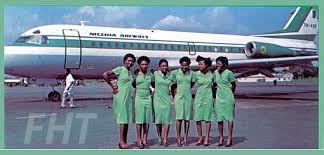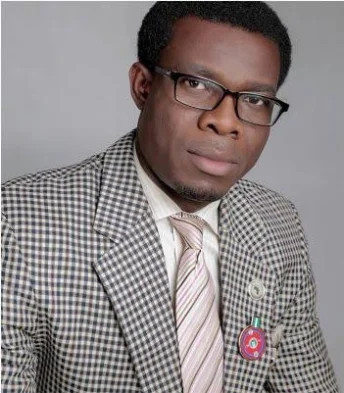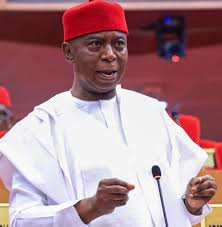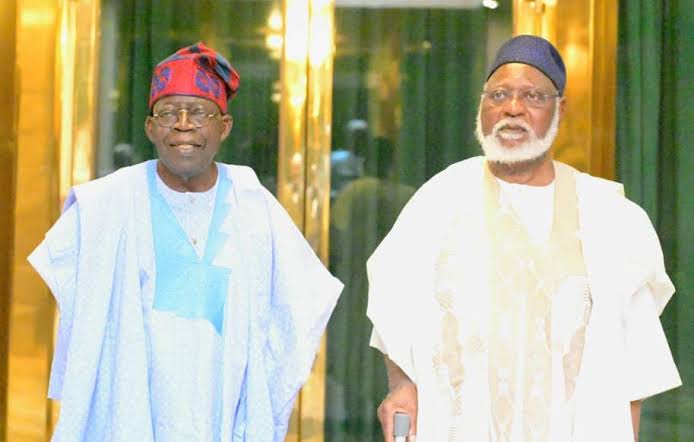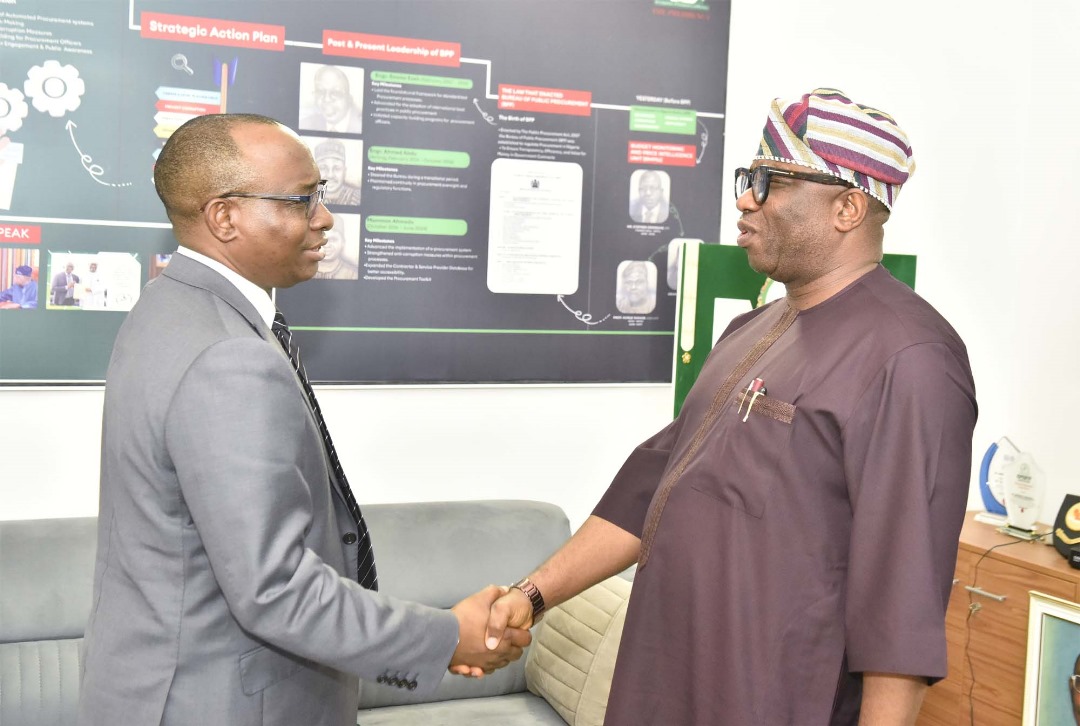194 total views today
By Magdalene Ukuedojor
Mr EricJames Ochigbo is all smiles and pride as he strides into his office; as a journalist, his work hours are spent investigating reports, attending events and meeting deadlines.
This radiance is not from breaking a big news story or catching up with a long sought-after news source, but purely of rest and bonding.
Ochigbo, after a 14 working day paternity leave, can bounce back to work happy, rested and fulfilled.
“I had my first baby, a baby girl, in December.
“Luckily for me, paternity leave was approved by the Federal Government the month before, without it, I wouldn’t know how to cope with my busy work schedule.
“My wife gave birth towards the end of the year, a festive and very busy period, it would have been very difficult to cope with the delivery and work, being a first-time dad.
“When I took out the 14 days, it gave me time to rest because the pressure of work was taken off me and then I was able to concentrate more on the demands of fatherhood.
“I took over the cooking and I carried the baby a lot and we bonded very closely; I rocked the baby while my wife rested.

“This way, she healed faster and was stronger to care for her when I returned to work.
“It was a wonderful time, I wish men could be given more days,” Ochigbo said.
Since the establishment of the News Agency of Nigeria (NAN) in 1976, the media outfit where Ochigbo works, no male officer had enjoyed paternity leave prior to his.
The Nigerian Civil and Public Service did not institute paternity leave for male officers until 2022 when the feat was accomplished by the President Muhammadu Buhari-led Administration.
Government prioritised women who benefitted immensely from maternity leave over the years while men clamoured for same.
Now, based on the circular with ref no: HCSF/SPSO/ODD/NCE/RR/650309/3, dated 25th November, 2022, men in the federal civil service, are entitled to paternity leave.
The then Head of the Civil Service of the Federation, Dr Folasade Yemi-Esan, said the leave was in line with the provisions of the Public Service Rules, 2021 Edition.
“Government has approved paternity leave for serving male officers whose spouse delivers a baby.
“The period of the leave shall be fourteen working days. The leave shall not be more than once in two years, and for maximum of four children,” she said.
The Federal Government went further to ensure that families with adopted babies were equally captured in the circular and reviewed Public Service Rules.
“Where the family of a male officer adopts a child under four months old, the officer will similarly enjoy paternity leave for a period of fourteen working days,” Yemi-Esan said.
What are the requirements needed to obtain paternity leave in the Federal Civil Service?
The male officer must be married and known to be married.
He must provide the Expected Date of Delivery’s report of his wife or evidence of approval of the adoption of the child by the relevant government bodies.
He must apply for the leave with the documents.
He can only be granted the leave once in two years.
How did the Federal Government achieve this feat?
Yemi-Esan explained that different union bodies clamoured for it, noting that bonding was important to help a newly born or adopted baby properly bond with the father in the early period.

Also, the Office of the Head of the Civil Service of the Federation (OHCSF) looked into international best practices in other climes, brainstormed at different stakeholders’ committees for a template.
The OHCSF, responsible for the leadership, management and capacity development of the Federal Civil Service to implement federal government’s policies and programmes, included the paternity leave in the reviewed Public Service Rules.
Mr Lawrence Nwaka, Special Assistant to the Permanent Secretary, Service Policies and Strategies Office, OHCSF, said that the reviewed rule was presented at the Federal Executive Council Meeting for approval.
“The paternity leave is a response of the Office of the Head of Civil Service of the Federation to the yearnings and aspirations of male civil servants.
“Who would love to be with their wives in the days following the delivery of their newborn babies in order to provide fatherly care for both mother and child.
“The circular emanated after the approval of the Public Service Rule 2021 at the Federal Executive Council; paternity leave wasn’t there in the last Public Service Rule 2008.
“It was reviewed, so following the review, it was necessary to include it in the Public Service Rule; it is one of the new items included in the new Public Service Rules 2021,” he said.
What impact has this leave created for male civil servants?
“It is most welcome; since we commenced implementation of the paternity leave, a lot of male civil servants have benefitted from it.
“People go on paternity leave and when they come back they are all beaming with smiles and you know it is new, we are beginning to see joy in the hearts of men.
“I tell you, taking care of four children myself, it is not easy for a mother, especially those that pass through caesarean section to cope alone.
“I wish we were able to make it one month; it would have been sweeter but 14 working days is like three weeks.
“I think it’s a very good beginning, maybe as time goes on the rule may be reviewed,” Nwaka said.
More so, a cross-section of views from male officers in federal establishments showed the challenges men faced combining work with the home front, especially during delivery and first few months with a newborn.
Mr Tomilayo Adedeji, an administrative officer and father of three, said he almost got a query from his office when his last child was born in 2019.
He opted for casual leave to attend the child’s naming ceremony.
“With my third child, I was called from the office that my wife had delivered so I rushed to the hospital.
“Because of running here and there to do some things, I couldn’t come to the office for two days; my supervisor then was very cross.
“I had to apply for casual leave for my child’s naming ceremony day.
“During that time, I could only help my wife during weekends and nights and sometimes she was too tired to attend to the baby because he wants to play at night.
“I would have to carry him and also attend to his older siblings; it took a toll on my job.
“Getting to the office I feel tired, worn out and mostly feel like sleeping but with paternity leave, fatherhood and bonding with a newborn will come easier.
“So I feel paternity leave is very good; it is key because there is a lot that men can achieve during that time,” Adedeji said.
Mr Mathew Anya, an engineer, said with every of his four children, he had to joggle running the home, hospital and meeting contract deadlines.
“The only thing that keeps me going at this time is the joy of having a baby and that my wife delivered safely.
“But like most men, we become lean, tired, don’t eat properly and are very distracted at work because your time is needed mostly at home.
“Women don’t understand that you need to work, they need you to be a husband and father,” Anya said.
On the medical standpoint, Dr Inyang Asuquo, a gynaecologist, highly recommends paternity leave for the well-being of the man, woman and newborn.
“The philosophy behind paternity leave is to give some ample time, though not enough, to be at home and support your wife or in the hospital if there are complications, and also bond with your child.
“Prior to this period where government did not consider paternity leave it was a real struggle for a lot of men who really understand the concept of marriage.
“As doctors, we hear and know a lot, so for the government to graciously approve this leave, our patients, the women, are happy. Their husbands now do much more for them.

“Paternity leave also goes a long way to help mothers with post-partum depression; with the presence of mind and body of their husbands, it is detected early and they can seek help.
“So we thank the Federal Government for this initiative,” Asuquo said.
Moreso, Neuroscience research shows that when fathers actively bond with their babies, the child’s brain develops more synaptic connections, leading to enhanced learning and emotional regulation later in life.
Successful father-infant bonding during the immediate postpartum period has been shown to have several benefits for the infant: it reduces cognitive delay, promotes weight gain in preterm infants, and improves breastfeeding rates.
Fathers engaging with their infants through skin-to-skin contact, feeding, and playtime contribute significantly to a baby’s neurological development.
By establishing an early connection, fathers help their children develop a sense of security, which translates to reduced stress and anxiety levels in the baby.
According to baby360.com, a platform that caters to parents from prenatal, postpartum to parenting with up-to-date maternity education materials, it also shows an increasing amount of research which suggests a strong correlation between early father-infant bonds and the happiness of the entire family.
Strong father-child bonds can help counter issues such as depression later on in life.
Men who report that they had a good relationship with their fathers during childhood were found to be better equipped to handle stress.
A child’s physical and mental development is significantly boosted when his dad has played with him from the start, compared to children whose fathers took a more hands-off approach.
Children who experienced close interactions with their fathers from an early age tend to be more successful academically, have better relationships with their peers and be less likely to get involved with crime or abuse drugs and alcohol.

For fathers, they experience less stress and increased confidence when they have their own special time with their newborns.
Actively participating in caregiving gives them a deeper sense of fulfilment and purpose. It also boosts their confidence as parents, helping them overcome societal stereotypes that often place fathers in secondary roles.
Besides, bonding helps dads develop empathy, patience, and a keen understanding of their baby’s nonverbal cues, strengthening their ability to nurture effectively.
In spite of the many benefits of paternity leave, the move is not welcome by all men in the federal service.
“I prefer it to be monetised; what some women want is not to see your face; they need money to cater to the bills and for pampers and baby food.
“What good is it hanging around the house for three weeks when you can’t provide for them, that will even cause undue stress for the man,” Mr Ahmed Lawal said.
Mr Adekunle Atolagbe shares Lawal’s views: “Except grandparents and in-laws are not in the picture to help out with the newborn, some men would find it difficult to be at home.
“And if they are around, the husband becomes an easy target for errands because they see you around, so I’d prefer to be at work to hustle for money to support them at home.
“Men are not cut out for care of newborns, many fathers are practically afraid of caring for newborns because they are so delicate,” he said.
Also, some women hope that husbands in the private sector and state government service would be given some relief and time to bond with their newborns.
They, however, are of the opinion that the men utilise it for the purpose.
“Fathers should be given three months’ paternity leave at least.
“But only for those who will truly help out at home because I don’t know what I would have done without my husband’s support,” Mrs Irene-Igho Effanga, a mother of triplets said.
In all, the Office of the Head of Service of the Federation and administrative arms of federal ministries, departments and agencies have the Public Service Rules for checks and balances and to review polices to help civil service officers bond better with their families.
Since government is a continuum, Mrs Didi Walson-Jack, the current Head of the Civil Service of the Federation, has also pledged commitment to overhauling Nigeria’s civil service with a significant shift, just like the paternity leave, to ensure professionalism, efficiency and accountability, with commendable focus on the welfare and performance of civil servants. (NAN)(www.nannews.ng)





